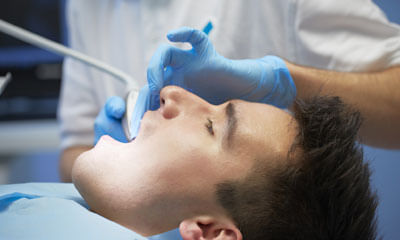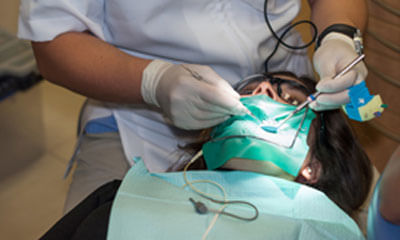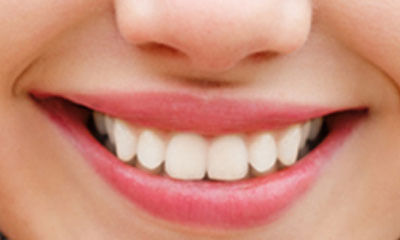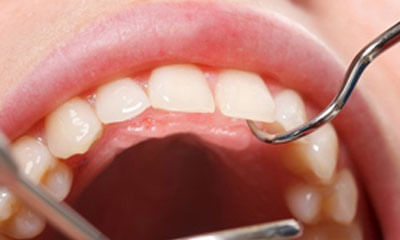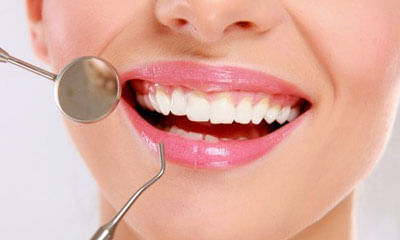Pain After Root Canal Treatment
I had a chronic toothache on my right side upper molar for about 6 years. I was scared of removal by dentist so I waited ...
Ask Free Question
I'm very concerned about the symptoms you're experiencing, especially the combination of blurry vision, stiff neck, acidic taste, and fluid movement in your skull. These can be indicative of several serious conditions, and it's crucial that you seek immediate medical attention from a qualified healthcare professional, not just a dentist. Here's why your symptoms are concerning: blurry vision and stiff neck: these can be signs of meningitis, a potentially life-threatening inflammation of the membranes surrounding the brain and spinal cord. Acidic taste and fluid movement in the skull: these can be caused by a leak of cerebrospinal fluid (csf), the fluid that surrounds and protects your brain and spinal cord. This can lead to meningitis if not treated properly. Fatigue, weakness, back pain, and hip pain: these can be symptoms of various underlying conditions, including infections, autoimmune disorders, and even neurological problems. It's important to understand that I am not a medical professional and cannot diagnose your condition. Delaying proper medical attention can have serious consequences, so please don't hesitate to seek help immediately. Here are some steps you can take: call your doctor or go to the nearest emergency room as soon as possible. Explain your symptoms and the history of your decayed tooth. Do not try to self-diagnose or treat your condition. Be honest and open with your doctor about your concerns and any other symptoms you may be experiencing. Follow your doctor's instructions carefully. Early diagnosis and treatment can significantly improve your chances of a full recovery, so please take action now. Remember, your health is the most important thing. I hope you feel better soon. Please take care of yourself and seek immediate medical attention.
My wisdom tooth is growing from side, sometimes it causes pain. Should I go for surgery or any other alternatives are ne ...
Ask Free Question
Whether you should get surgery for your sideways-growing wisdom tooth depends on several factors, and determining the best course of action requires professional guidance. However, I can provide some information to help you understand your options: reasons for surgery: pain: if your wisdom tooth is causing you pain, especially recurring or severe pain, surgery to remove it is often the recommended course of action. Wisdom teeth growing sideways can irritate gum tissue and surrounding teeth, leading to discomfort. Infection: sideways-growing wisdom teeth are more prone to infection due to difficulty cleaning them properly. Infections can cause significant pain, swelling, and other complications, necessitating surgery. Damage to other teeth: sideways-growing wisdom teeth can push against neighboring teeth, causing crowding, misalignment, and even damage. Removing them can prevent these issues. Cyst formation: in some cases, sideways-growing wisdom teeth can lead to the formation of cysts, which are fluid-filled sacs that can damage the jawbone and surrounding teeth. Cysts typically require surgical removal. Alternatives to surgery: monitoring: if your wisdom tooth isn't causing any problems and isn't at high risk of causing issues in the future, your dentist may recommend monitoring it regularly. Pain management: while not a long-term solution, over-the-counter pain relievers and anti-inflammatory medications can help manage pain associated with an erupting wisdom tooth. Gum irrigation: proper oral hygiene and regular use of a water flosser can help keep the area around your wisdom tooth clean and reduce the risk of infection. Next steps: the best way to determine whether surgery is necessary for your situation is to consult a dentist or oral surgeon. They can assess your wisdom tooth through x-rays and a physical examination to understand its position, potential risks, and the most appropriate course of action. Remember, seeking professional advice is crucial for ensuring proper dental health and preventing potential complications.
What are the chances that I need rct after a deep filling when there's no pain? And how can I preserve my filling so tha ...
Ask Free Question
That is very unpredictable depends on many factors. But prevention is better than cure. Avoid eating very hard and sticky food. Brush twice a day religiously.
I am suffering from tooth pain since 2 weeks almost have tried multiple docs but could not get relief since then, please ...
Ask Free Question
First of all its important to diagnose your case then medication should be prescribed and treatment plan can be decided. Do not take unnecessary pain killer for long time. Its better to visit a dentist or book an appointment with a dentist.
I took i-pill on 21 november and from yesterday there is swelling over my face. Also I have tooth ache. I am confused wh ...
Ask Free Question
There's nothing to be done with i-pill and toothache. Visit your nearest dentist or consult a dentist online for better understanding and proper diagnosis of your case.
For severe toothache which is good meteorologist dt or enzoflam actually Dr. performed root canal 4 sitting already done ...
Ask Free Question
No medicine is good for severe toothache. RCT and Crown is the solution. If it can't be done then removal only may provide relief from that severe pain. If you don't want any treatment to be done and toothache resolves then there are 100% chances that pain or swelling may disrupt your sleep one or many days. So go for the permanent treatment and not temporaries. It can also convert into something which you never want to even hear it. So that's my advice to you rest is your will. Hope this helps
I had my lower right fully impacted wisdom tooth extracted in march 2023, and it has been 6 months since the extraction, ...
Ask Free Question
Pain in the teeth during the night strongly indicates pulpitis due to tooth decay. Kindly consult a dentist in person for further suggestion. We need more investigations with clinical examination to decide upon treatment. You may need root canal treatment and crown. Advance procedures can be done with laser.
My question related to my teeth .actually last 3 year m mujhe cavity ho gyi than maine us tym cavity pain se relief ke l ...
Ask Free Question
Apko jldi hi teeth ka treatment karwana prega. Wo gum ka growth usi teeth ki hole jo ki cavity hai usi k wajah se hui hai. Most probably apko root canal hi karwana prega. Zyada late krne se daat nikalwana bhi pr skta hai.
I have toothache in my left last tooth and the ain is less all day but as soon as I go to sleep the pain is more. ...
Ask Free Question
I understand that your toothache worsens at night, which can be frustrating and interfere with your sleep. While I cannot provide medical advice or diagnose your condition, I can offer some general information and suggest next steps: possible reasons for nocturnal toothache: increased blood flow: when you lie down, blood flow to your head and face increases, potentially amplifying existing inflammation or pain in your tooth. Pressure: lying on your side can put pressure on the affected tooth, exacerbating the pain. Reduced saliva production: saliva helps neutralize acids and wash away food debris. During sleep, saliva production decreases, creating a potentially more acidic environment in your mouth that could irritate the sensitive tooth. Tips for managing nocturnal toothache: elevate your head: sleeping on extra pillows or using a wedge pillow can help reduce blood flow to the area and potentially lessen the pain. Apply a cold compress: hold a cold compress (wrapped in a towel) against your cheek near the affected tooth for 10-15 minutes at a time. This can help numb the area and reduce inflammation. Avoid hot or cold beverages: extreme temperatures can further irritate the sensitive tooth. Opt for lukewarm water or beverages. Avoid lying on the affected side: try sleeping on the opposite side to minimize pressure on the painful tooth. Over-the-counter pain medication: consult your doctor or pharmacist about over-the-counter pain medication suitable for toothaches. Follow dosage instructions carefully. Seeking professional help: while these tips may offer temporary relief, it's crucial to schedule an appointment with your dentist as soon as possible. They can properly diagnose the cause of your toothache and recommend the appropriate treatment. Ignoring a toothache, especially one that worsens at night, can lead to serious complications if left untreated. The dentist will conduct a thorough examination, including x-rays if necessary, to identify the cause of your pain. Depending on the diagnosis, they might recommend various treatment options like fillings, root canals, crowns, or even extraction in severe cases. Remember, prioritizing your dental health is essential. Seeking professional help promptly ensures proper diagnosis, appropriate treatment, and prevents potential complications. I hope this information is helpful. Please do not hesitate to ask further questions if you need more clarification.
My mom had root canal on 1st and 2nd molar and had a wisdom teeth removal right after they did root canal, is it problem ...
Ask Free Question
I understand your concern about your mom's dental procedures. While I can't offer specific medical advice, I can provide some general information and encourage you to discuss any concerns with your mom's dentist directly. Regarding the combination of procedures: having a root canal on the first and second molars followed by wisdom teeth removal on the same day is not inherently problematic. In fact, dentists sometimes schedule multiple procedures together for efficiency and patient comfort. However, the specific details of your mom's case and individual health are crucial in determining if it was the right approach. If you have specific concerns about combining these procedures, the best course of action is to discuss them directly with your mom's dentist. They can explain the rationale behind the decision and address any specific questions you might have. Regarding bleeding during the root canal: some minor bleeding during a root canal is not uncommon. It can occur during the removal of infected tissue or while preparing the canals for filling. However, significant or persistent bleeding might indicate potential complications. If you're concerned about the amount or duration of bleeding, don't hesitate to raise it with your mom's dentist. They can assess the situation and determine if any further action is necessary. Regarding precautions: following your mom's dentist's post-operative instructions is crucial for optimal healing and preventing complications. These may include pain management, dietary restrictions, oral hygiene recommendations, and activity limitations. Gentle brushing and flossing around the treated teeth, as advised by the dentist, is important for oral hygiene without disturbing the healing process. Managing potential discomfort with prescribed or over-the-counter pain medication can help ensure your mom's comfort during recovery. Avoiding strenuous activities in the immediate post-operative period allows the treated teeth to heal properly. Regarding the second visit: removing the cotton used for initial closure after a root canal is a standard procedure. It allows the dentist to assess the healing process and perform any necessary further treatment. If you have any concerns about this, or any other aspect of the upcoming visit, be sure to discuss them with your mom's dentist beforehand. They are there to address your questions and ensure your mom's well-being. Remember, open communication with your mom's dentist is key to understanding the procedures, addressing any concerns, and ensuring optimal healing. I hope this general information is helpful. Please prioritize seeking professional advice from your mom's dentist for any specific questions or concerns you may have.

